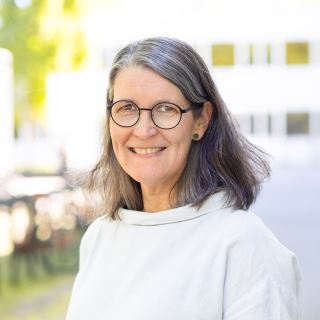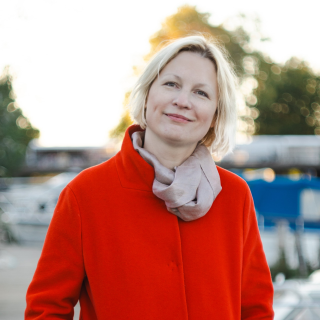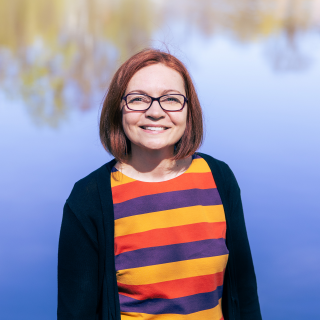About me
Juliene Madureira Ferreira is an Associate Professor in the Faculty of Education and Culture at Tampere University and currently leads the subgroup Child and Learning Ecologies within the ECEPP research group. She received her PhD in Psychology (Developmental Psychology) from São Paulo University in 2017 and her PhD in Education from the University of Tampere at the end of 2018, followed by a two-year postdoctoral fellowship also at Tampere University (TAU). Before arriving at TAU, she worked at the Department of Educational Psychology of the Teacher Training School of the Federal University of Uberlândia, Brazil (2010-2017). During this appointment, she also served as the school's vice dean of the unit and coordinated the administrative, academic, and research activities in the areas of Early Childhood Education and the First years of Elementary Education (2012-2015), and was directly involved in the reconfiguration of the early childhood education curriculum. At the Federal University of Uberlândia, Brazil, Juliene Ferreira also coordinated one of the Programs for Teacher Education in Special Education in the National Network for Teacher Education in Inclusive Education, organised by the Ministry of Education in Brazil (2009-2014).
In her research, Juliene has investigated students’ sociability in challenging social interactions/contexts (e.g., when group members have significantly different developmental paths, including children with intellectual disability), analysing how diverse ways of establishing intersubjectivity influence peer learning (2013-2019). Her research has also focused on understanding material affordances for action in learning situations, advancing our understanding of neurodivergent social cognition and developing inclusive practices in special support. In collaboration with colleagues for the USA, China, Taiwan, and Brazil, Juliene has also investigated learning and teaching of (inter)relational processes of care, building on moral education, ethics of care, and developmental psychology to investigate how care is conceptualised, learned, and taught across different ages and cultures. The results provided insights into how learning to care for others, across cultures, is grounded in embodied and affective social experiences.
More recently, her focus has shifted to understanding how we (human beings at different life stages) think in digital environments, including the relationships we may establish with AI. The approach continues to explore embodied cognition theories, this time bringing more focus on extended, distributed and enactive perspetives.
Professionally, Juliene is also interested in improving teacher training to help pre-service teachers become more aware and equipped to support social interactions and collaborative learning in these challenging situations.
Research topics
My research spans different topics in educational psychology. More recently, I have focused on the applications of embodied cognition theories (5E cognition) in the learning processes and contexts, examining, for example, the implications of the embodied shift in autism studies. My research interests vary across the following:
- Learning and development in formal education,
- Embodied learning,
- Intersubjectivity (social cognition) in learning,
- Materiality in learning
- Inclusive and special education,
- Autism research (focus on communication and learning processes)
Research unit
Faculty of Education and Culture
Research fields
Educational Psychology
Funding
Kone Foundation (2025-2029), CNPQ Brazil (2025-2027).
Main positions of trust
Member of Planning Group for Doctoral Education (Doctoral Program board) - Faculty Level
Member of the Tenure Track Monitoring Group - University Level
Member of the Professors' Union - Community Level
Selected publications
Ferreira J. M. & Muniz, L. S. (2024). Material Engagement Shaping Participation of Children on the Autism Spectrum: Embodiment and Subjectivity in Small-Group Learning. Europe's Journal of Psychology, 20(2), 143–164, https://doi.org/10.5964/ejop.13307
Alessandroni, N., & Ferreira, J. M. (2024). Materiality and Cognitive Development: Contemporary Debates and Empirical Studies in Early Childhood. Europe's Journal of Psychology, 20(2), 79–83, https://doi.org/10.5964/ejop.14433
Ferreira, J. M., (2023). An embodied view on collaboration in early childhood education: combining microanalysis and introspective analysis of experiences to understand meaning-making between children with and without intellectual disabilities.Human Arenas. https://doi.org/10.1007/s42087-023-00380-4
Ferreira, J. M. (2021). What If We Look at the Body? An Embodied Perspective of Collaborative Learning. Educational Psychology Review. https://doi.org/10.1007/s10648-021-09607-8
Ferreira, J. M., & Bottema-Beutel, K. (2023). The interactional structure of accounts during small group discussions among autistic children receiving special education support in Finland. Journal of Autism and Developmental Disorders. https://doi.org/10.1007/s10803-023-05916-9
Ferreira, J. M., & Midgette, A. J. (2023). Learning and Teaching Care within the Family: Experiential learning reflecting informal teaching. Journal of Social and Personal Relationships. https://doi.org/10.1177/02654075231211359




